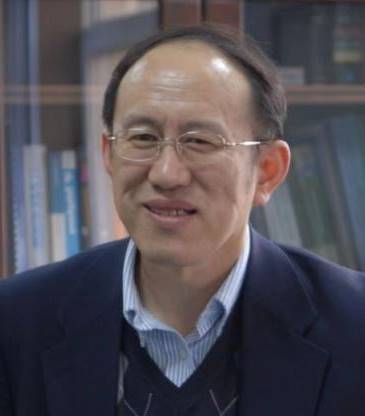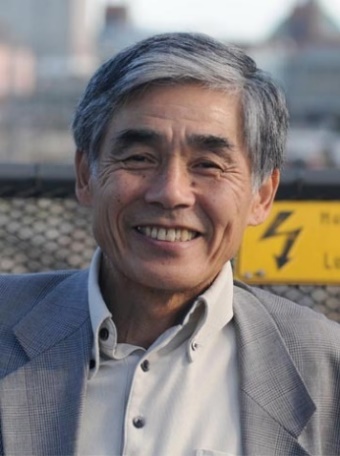
| 自动化学术论坛[2025第... | |
| 自动化学术论坛[2025第... | |
| 自动化学术论坛[2025第... | |
| 自动化学术论坛[2025第... | |
| 自动化学术论坛[2025第... | |
| 自动化学术论坛[2025第... | |
| 自动化学术论坛[2025第... | |
| 自动化学术论坛[2024第... | |
| 自动化学术论坛[2024第... | |
| 自动化学术论坛[2024第... |
自动化学术论坛[2023第33-35期]:ICPS 2023大会报告
 (一)
(一)
报告时间:5月9日(星期二)上午 09:10-10:10
报告地点:东湖国际会议中心
报 告 人:Xiaohong Guan,Xi'an Jiaotong University
报告题目:Cyber-Physical Energy Systems for the Energy Revolution
内容简介:Networking, intelligence and integration of cyber and physical systems are the trend of information science and technology development. Cyber-physical systems are the foundation of the energy revolution and technology revolution with tremendous challenges on cyber-physical modeling, intelligence design, system optimization and control. Cyber-physical energy systems with hydrogen storage offers a possible solution for energy supply and consumption without carbon emission and pollution, and would lead to the energy revolution towards resolving the global warming issue. It is shown that with the nontraditional energy storage technology the hydrogen enabled zero-carbon intelligent energy system provides an ideal infrastructure for energy supply and consumption without carbon emission and pollution, and would lead to the energy revolution towards resolving the global warming issue.
报告人简介:Xiaohong Guan received his B.S. and M.S. degrees in Control Engineering from Tsinghua University, Beijing, China, in 1982 and 1985, respectively, and his Ph.D. degree in Electrical and Systems Engineering from the University of Connecticut in 1993. He was a senior consulting engineer with Pacific Gas and Electric from 1993 to 1995. He visited the Division of Engineering and Applied Science, Harvard University 1999-2000. Since 1995 he has been with the Systems Engineering Institute at Xi’an Jiaotong University, Xi’an, China, and was appointed as the Cheung Kong Professor of Systems Engineering in 1999, and Dean of Faculty of Electronic and Information Engineering since 2008. From 2001 he has also been with the Center for Intelligent and Networked Systems, Tsinghua University, Beijing, China, and severed the Head of Department of Automation, Tsinghua University, 2003-2008.
Professor Guan is a member of Chinese Academy of Science and IEEE Fellow. His research interests include economics and security of networked systems, optimization based planning and scheduling of electrical power and energy systems, manufacturing systems, etc., and cyber-physical systems, etc.
(二)
 报告时间:5月10日(星期三)上午 09:00-10:00
报告时间:5月10日(星期三)上午 09:00-10:00
报告地点:东湖国际会议中心
报 告 人:Peng Shi,University of Adelaide, Australia
报告题目:Cyber-Physical Systems: Analysis and Design
内容简介:Cyber-physical systems (CPS), such as smart grids and intelligent transportation systems, are complex systems where software and hardware components are seamlessly integrated toward performing well-defined tasks. However, this integration increases the vulnerability of CPS with higher possibility of cyber-attack that could cause severe consequences to economics, society, and human beings. Hence, cyber-security is critical and important in CPS. In this talk, the security of CPS is discussed from the perspectives of attackers. We will introduce the background of CPS and security issues, and some existing work on cyber-attacks. We then present our recent work on the design of stealthy hybrid attacks to CPS, which enables attackers to launch hybrid cyber-attacks more effectively to maximize system performance degradation with less chance to be detected.
报告人简介:Peng Shi received the PhD degree in Electrical Engineering from the University of Newcastle, Australia, the PhD degree in Mathematics from the University of South Australia, the Doctor of Science degree from the University of Glamorgan, UK, and the Doctor of Engineering degree from the University of Adelaide, Australia. He is now a Professor at the School of Electrical and Electronic Engineering, and the Director of Advanced Unmanned Systems Laboratory, at the University of Adelaide, Australia. His research interests include systems and control theory and applications to autonomous and robotic systems, cyber-physical systems, and multi-agent systems. He received the MA Sargent Medal Award from Engineers Australia in 2022 to recognize his longstanding eminence in science and practice of electrical engineering, the Life-time achiever Leader-Board acknowledgement from THE AUSTRALIAN from 2019-2022, and the Highly Cited Researcher recognition from Thomson Reuters from 2014-2022. Currently he serves as the Editor-in-Chief of IEEE Transactions on Cybernetics, a Senior Editor of IEEE Access, and an editorial member for a number of journals, including Automatica and IEEE Transactions on (Artificial Intelligence, and Circuits and Systems). His professional services also include as the President of the International Academy for Systems and Cybernetic Sciences, the Vice President of IEEE SMC Society, and IEEE SMC Distinguished Lecturer. He is a Fellow of IEEE, IET, IEAust and CAA, a Member of the Academy of Europe, and an Honorary Member of the Romanian Academy of Scientists.
 (三)
(三)
报告时间:5月11日(星期四)上午 08:30-09:30
报告地点:东湖国际会议中心
报 告 人:Shinji Hara,Tokyo Institute of Technology,Japan
报告题目:Glocal (Global/Local) Control for Hierarchical Cyber Physical Systems: Theoretical Foundation towards Practical Applications
内容简介:There are a lot of world-wide crucial issues to be solved such as energy, environments, and transportations. Current and future directions of science and technology in almost all fields including control should be contributed for realizing desirable societies, say smart cities. This means that our target systems in control are large-scale cyber physical systems with hierarchical structure. One of the ideas to properly handle such systems is "Glocal (Global/Local) Control," which means that the global objective is achieved mainly by local actions of measurement and control cooperatively. This is a new control framework for realizing smart cities. The key for developing a fundamental theory is hierarchically networked dynamical systems with multiple resolutions in time and space, and one of the most important issues is how to compromise the global and local control objectives.
The main purpose of this talk is to show that new ideas, by exploiting the special structure of the target networked systems, with utilization of powerful existing theory in classical, modern, and robust control enable us to develop scalable methods for control analysis and design. The effectiveness of the proposed methods is verified through practical applications including glocal control for a type of electric vehicles with multiple controllable wheels. After explanations of the background, the idea, and the concept of glocal control, the first part is focused on the analysis, where stability and robust stability conditions are provided for hierarchically decentralized control systems. The second part is devoted to hierarchical optimal control based on the standard LQ optimal control, which gives a systematic way of compromising the global and local objectives. In the third part, a fairly general framework for compromising the global and local achievable performances based on a novel setting in the standard robust control. The effectiveness of all the proposed methods is verified through practical applications including glocal control for a type of electric vehicle with multiple motor driven wheels. Some remarks on the future research directions are addressed at the end of the talk.
报告人简介:Shinji Hara received the B.S., M.S., and Ph.D. in engineering from Tokyo Institute of Technology, Japan, in 1974, 1976, and 1981, respectively. In 1984, he joined Tokyo Institute of Technology as an Associate Professor and served as a Full Professor for ten years. From 2002 to 2017 he was a Full Professor in the Department of Information Physics and Computing at the University of Tokyo. He is Professor Emeritus of Tokyo Institute of Technology and the University of Tokyo. His current research interests are in robust control, decentralized cooperative control for large-scale networked dynamical systems, system biology, and glocal control.
Dr. Hara has received many awards in control including the George S. Axelby Outstanding Paper Award from the IEEE Control System Society in 2006. He was the President of SICE (Society of Instrument and Control Engineers, Japan) in 2009, a Vice President of the IEEE Control Systems Society in 2009 to 2010, and an IFAC Council member from 2011 to 2017. He is a Fellow of IFAC, IEEE, and SICE.
Copyright 复杂系统先进控制与智能自动化湖北省重点实验室
电话:027-87175110 邮箱:zdhyb@cug.edu.cn
湖北省武汉市洪山区鲁磨路388号 邮编:430074